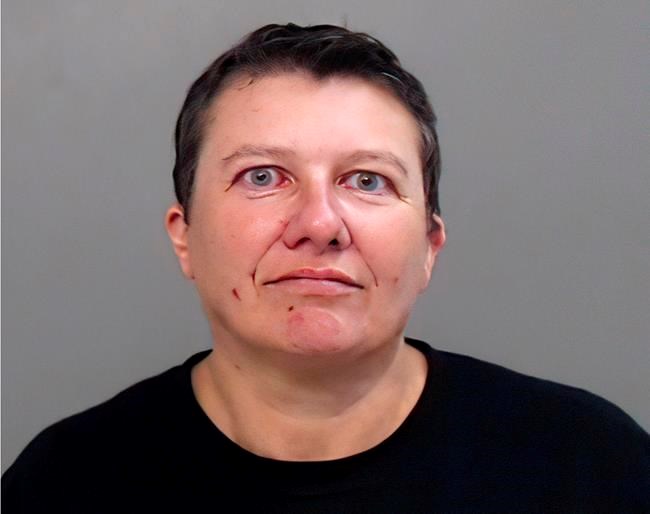WASHINGTON — A Quebec woman awaiting trial for allegedly mailing poison to then-president Donald Trump in 2020 is not entitled to recover more than US$2,000 seized by authorities, a United States federal judge ruled Friday.
Judge Dabney L. Friedrich sided with prosecutors who argued the money, which was seized from Pascale Ferrier when she was arrested at the U.S. border in September 2020, should not be returned.
Lawyers representing Ferrier, who is detained in a Washington, D.C., prison, argued during a virtual court appearance that she needs the money to buy basic items, including food, and to call her family in Canada while she awaits trial.
"We're really just here about getting Ms. Ferrier the ability to get all the shampoo that she wants, get all the toiletries that she wants, get all the underthings that she wants, be able to communicate with her family, which is more expensive, obviously, because they're in Canada," said Eugene Ohm, a federal public defender. He noted that most prisoners have access to money from their own bank accounts or nearby family.
But the prosecution argued the cash is evidence that could be presented in court. "It's powerful evidence to be able to show the jury at the trial what the defendant had in her possession when she came, including the full amount of the currency," prosecutor Michael Friedman told the court.
He also said a sealed filing relating to actions Ferrier is alleged to have taken after her arrest, which are still being investigated, suggests returning the money could pose a "grave danger to the community."
The alleged actions referenced in the sealed filing, as well as disciplinary reports from two detention facilities where Ferrier has been held, suggest Ferrier should undergo a competency hearing to see if she is fit to stand trial, Friedman said.
"If we end up having a trial in this case here in D.C., there's going to come a time where we're going to have to address whether this case can proceed to trial or not," he told the court.
Friedman has asked the court to order Ferrier to undergo a 30-day mental health evaluation, a motion that has been opposed by the defence. That evaluation would require Ferrier to be transferred to another facility.
Friedrich did not rule on that request Friday, instead asking the prosecution to provide more information about how long the evaluation would take. She said one defendant in a case before her has been waiting since September for similar evaluation.
The defence argued that Ferrier is fit to stand trial because she understands the nature and possible consequences of the proceedings.
"The government hasn't put forth any evidence that she doesn't understand the nature of these proceedings," said David Bos, one of Ferrier's lawyers.
Ferrier is accused of mailing a letter containing the poison ricin to Trump at the White House. She also faces several federal charges in Texas, where she is alleged to have sent threatening letters containing the poison to law enforcement officials.
This report by The Canadian Press was first published Jan. 7, 2022.
— By Jacob Serebrin in Montreal
———
This story was produced with the financial assistance of the Facebook and Canadian Press News Fellowship.
The Canadian Press
Note to readers: This is a corrected story. A previous version said Ferrier was arrested in 2021.



